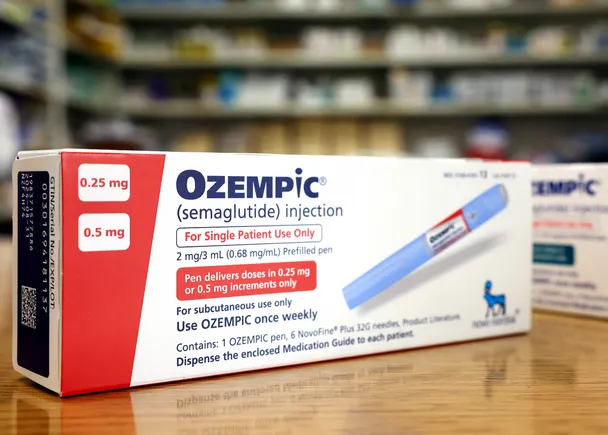Under-the-skin Keytruda comparable to infused version in Phase 3 study, Merck says


Dive Brief:
- An experimental under-the-skin injection of Merck & Co.’s cancer immunotherapy Keytruda showed similar characteristics as the current intravenous formulation in a Phase 3 clinical trial, the company said Tuesday.
- The drugmaker plans to discuss data from the trial, which it didn’t disclose in full, with the Food and Drug Administration and other regulators. The intravenous form of Keytruda is expected to lose U.S. patent protection in 2028, which would open the door to biosimilar competitors.
- Rival Roche has already gained FDA approval for a subcutaneous version of its competing immunotherapy Tecentriq, while Bristol Myers Squibb is awaiting an FDA decision on an under-the-skin injection of Opdivo. Merck could be as much as a year or more away from approval of subcutaneous Keytruda.
Dive Insight:
With Keytruda’s market exclusivity running out, Merck is searching for ways to sustain revenue from the world’s top-selling drug, which recorded nearly $22 billion in sales through the first nine months of 2024.
An under-the-skin shot could be more convenient than the 30-minute infusion required with the current formulation, and would be protected by a new set of patents.
Subcutaneous Keytruda combines the active biological molecule with an enzyme developed by South Korean biotech Alteogen that aids in absorption and dispersion by the body.
The Phase 3 study tested the two versions of Keytruda with chemotherapy in people with non-small cell lung cancer, the drug’s largest indication. It found blood levels of the drug were similar at periodic time checks, including right before administration of the next dose, for both the subcutaneous and IV versions, the study’s main goal. Secondary measures of safety and efficacy were “generally consistent,” Merck said.
Roche and Bristol Myers completed work earlier than Merck did on their respective subcutaneous shots, which both use an enzyme developed by frequent pharma partner Halozyme. Subcutaneous Tecentriq won FDA approval in September, while the new version of Opdivo is due a decision by Dec. 29.
Keytruda’s main competition may be its patent expiration. Its approval in more types of cancer and dominant position in the front-line non-small cell lung cancer setting may make it hard for Tecentriq and Opdivo to take back market share via a temporary subcutaneous dosing advantage.
However, Merck will need to get on-time approval to fully transition over to the subcutaneous product before the 2028 patents expire and fend off competition from biosimilars. Sandoz, Samsung Bioepis, Amgen, Celltrion and other biosimilar makers are advancing their own versions of pembrolizumab, the scientific name for Keytruda.
This post has been syndicated from a third-party source. View the original article here.




